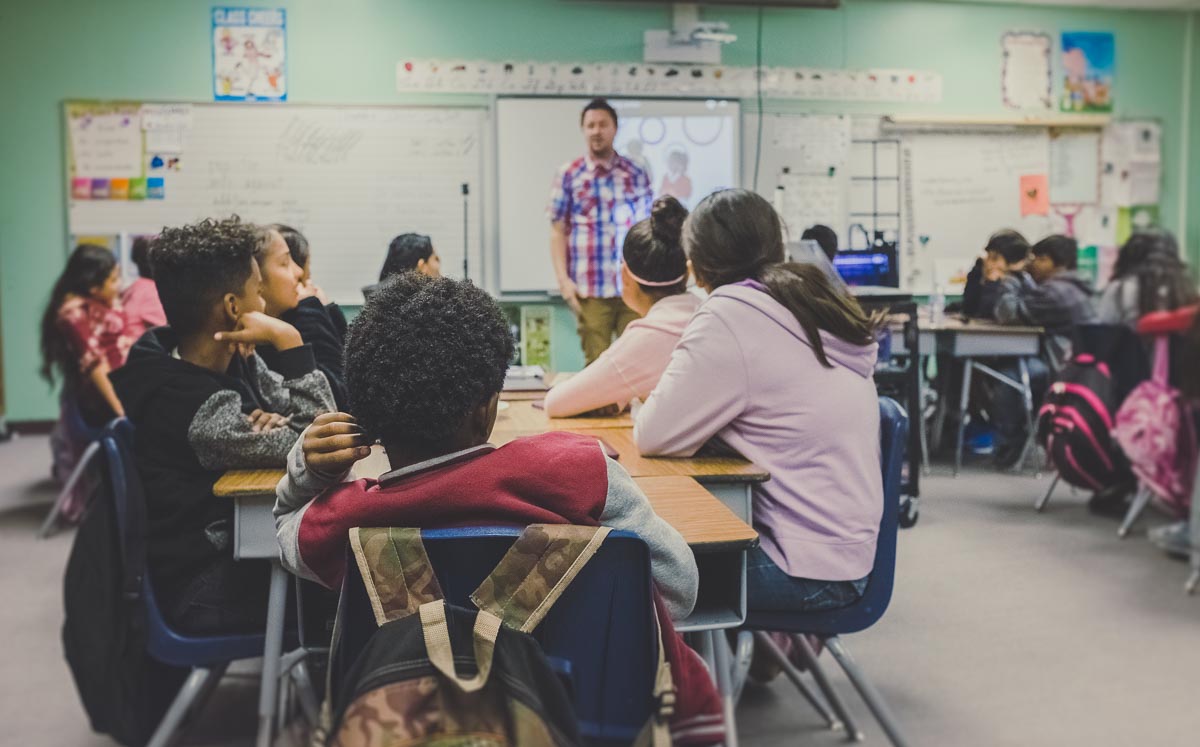Lisa Descant, chief executive officer of CIS of Houston, said the $13 million gift comes at an ideal time as the Houston education system continues to face harrowing challenges brought on by the pandemic and other recent disasters such as Hurricane Harvey.
“It’s really clear to those of us who have been doing this for a while, that those challenges and others, the tragedy of Astroworld and so many—that they have just exacerbated the effects of what we already knew existed in terms of adverse childhood experiences and adverse community environmental defects. So, there’s a lot of work to be done,” said Descant, who has been involved in CIS Houston for almost 20 years.
The Houston gift was part of a larger $133.5 million commitment by philanthropist MacKenzie Scott to the Communities In Schools Network and National Office. Scott has donated generously to other organizations. Last year, she gave $50 million to HBCU Prairie View A&M University. Descant said Scott’s donation will help the Houston affiliate serve more students and schools. They also plan to further invest in their staff, so that they can continue to have the most qualified employees.
“It’s clear we’ve been on a growth trajectory for years and know that this funding will enable us to serve additional students,” said Descant. “It’s the dream to serve more students, to serve more schools.”
Structured supports
The first Communities In Schools organization began in New York City in the 1970s. Since then, the organization has expanded to include affiliates all over the country including in California, Georgia, Florida and Texas.
In Houston, the organization works directly with schools to serve students and address a variety of concerns including mental health services, food and housing. About 166 campuses across the city, including Houston Independent School District and five other districts, have support from the organization.
“It is being prepared to talk about a lack of food, it is being prepared to talk about a lack of underwear, it’s being prepared to talk about what you witnessed between mom and boyfriend last night, or that housing is no longer stable because an addiction is imminent,” said Descant. “The range of our conversations on any given day with students is massive.”
Prior to the pandemic, a survey led by the Houston Education Research Consortium found that one in four students experienced hunger at home, one in six struggled with access to supplies and clothing, and one in three had trouble focusing in school because of mental health problems.
As these conditions have likely only worsened amid the pandemic, HISD and HERC have prioritized re-administering an updated needs assessment survey to parents, students, and teachers across the district.
“As HISD continues to expand the Wraparound supports it provides to students and their families, it is crucial that the district, and it’s community partners, have accurate information about the depth of need across the Houston area” said Kori Stroub, HERC research scientist working with HISD on the needs assessment.
During the first phase of the pandemic, CIS Houston went virtual to be able to support students at home. They also completed home visits, brought devices and worked on hot spot issues for students doing school from home.
The organization has also grown their mobile mental health team, which are assigned to multiple campuses. Descant said they’re seeing increases in suicide ideation, family stress, family conflict, and increased anxiety and depression among students.
Students across the country are also dealing with mental health issues in greater numbers. In Fall 2021, American Academy of Pediatrics, the American Academy of Child and Adolescent Psychiatry, and the Children’s Hospital Association declared childhood and adolescent mental health a national state of emergency.
Adolescents making trips to the emergency department for mental health emergencies also increased 31% in 2020, according to the federal Centers for Disease Control and Prevention.
Trying times
Ana Troya, who is a CIS student support manager at Alief ISD’s Bush Elementary School, said she’s noticed the mental health challenges play out on her campus.
“We’re looking at more need from the students and families for mental health. We saw a lot of loss in the family, so we needed grieving services as well,” Troya said.
This is true for other students across the country. More than 140,000 children across the country lost a caregiver during the pandemic, according to a statement from American Academy of Pediatrics, American Academy of Child and Adolescent Psychiatry and Children’s Hospital Association.
It’s not just the students who have endured hardship this year; teachers are facing burnout and are considering quitting their jobs earlier than planned. In a recent survey released earlier this month from the National Education Association, 55% of teachers said they want to leave their career earlier than intended.
There are also 567,000 fewer educators teaching at public schools across the country compared to before the pandemic, according to the Bureau of Labor Statistics.
At Davis High School in Aldine ISD, Katrina Dowdell, a student support manager and cluster leader, also wants to make sure teachers and students feel supported during times of high stress, particularly as they have come to her to talk about the loss of loved ones during the pandemic.
To deal with heightened stress the pandemic brought to campus, she created a wellness room for teachers and staff.
“There’s positive affirmations that they can look at,” said Dowdell. “There’s music that can be played. I have a strobe light. I have the darkening curtains. It’s just a serene place. They can calm down.”
Descant said their organization has noticed the increased stress on teachers since the pandemic.
“It’s incredibly hard working in education right now,” said Descant. “Students deserve the very best and teachers deserve to be supported into doing their very best.”
Brooke Lewis is a Houston-based journalist and contributor to the Urban Edge blog. She is a writer and teacher with Writers in the Schools Houston and co-founder of the BIPOC Book Fest.

